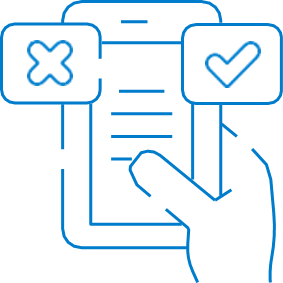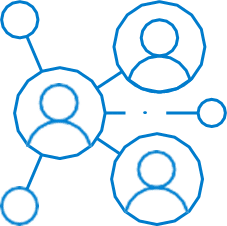Alan Solow is Chair of the Nexus Project and former Chair, Conference of Major American Jewish Organizations. Kevin Rachlin is Washington Director of the Nexus Project .
The following recommendations, drawn from and inspired by the essays in the first part of the Shofar Report, provide a comprehensive framework for addressing antisemitism through policies that have demonstrated track records of success — and that strengthen democratic institutions while protecting Jewish communities. These actions prioritize education, civil rights enforcement, and coalition-building over punitive measures that risk undermining the pluralistic democracy where Jews are historically safest.
While these recommendations are intended for policymakers, we hope they will help community leaders, Jewish and otherwise, as they educate, advocate, and share resources to protect democracy and combat antisemitism specifically and broader extremism.
- Restore and Expand Investment in Education
- Strengthen Civil Rights Enforcement
- Support Community-Based Prevention of Antisemitism and Hate Crimes
- Counter Disinformation and Conspiracy Theories
- Protect Congressional Oversight of Democratic Processes
- Preserve Academic Freedom
- Restore Refugee and Asylum Protections
- Build Coalitions to Protect Democracy
Recommended Legislative and Executive Actions
1.
Restore and Expand Educational Investment
- Fully fund comprehensive education initiatives, including Holocaust education, media literacy, and programming, that teach about diverse Jewish contributions to and of antisemitism in American society alongside other communities’ histories
- Fund and expand media literacy programs
- Expand funding for educational programs that address the 63% knowledge gap among young Americans about Holocaust history
- Integrate Jewish history into broader American history curricula
- Develop media literacy programs that teach recognition of conspiracy theories and manipulation techniques
- Support programs that highlight Jewish contributions to civil rights, labor movements, and democratic institutions

2.
Strengthen Civil Rights Enforcement
- Ensure vigorous enforcement of existing civil rights laws through adequate funding for the Department of Education’s Office for Civil Rights, Department of Justice civil rights programs, and Equal Employment Opportunity Commission activities
- Focus enforcement on clear discrimination and harassment while protecting political expression and academic freedom
- Provide technical assistance to institutions on meeting civil rights obligations without suppressing legitimate discourse
- Rather than expanding definitions of antisemitism beyond their proper scope or focusing on codifying them, maximize the effectiveness of current legal frameworks that distinguish between protected speech and discriminatory conduct.

3.
Support Community-Based Prevention
- Expand programs supporting community-based approaches to hate crime prevention, including initiatives addressing antisemitism through education, relationship-building, and early intervention
- Invest in successful programs building community resilience against extremist recruitment
- Fund “off-ramp” programs helping individuals leave extremist movements through mental health services, job training, and community reintegration assistance
- Ensure that nonprofit security grants are fully funded and that grantees and sub-grantees are not beholden to an administration’s ideological whims on issues like diversity or immigration.

4.
Counter Disinformation and Conspiracy Theories
- Develop coordinated approaches addressing the conspiracy theories that drive both antisemitism and anti-democratic extremism
- Support research into disinformation spread patterns and transmission mechanisms
- Fund media literacy education that builds cognitive resistance to conspiracy thinking
- Work with platforms to disrupt coordinated inauthentic behavior without censoring legitimate discourse
- Target Great Replacement and QAnon conspiracy theories, which are the strongest predictors of both antisemitism and support for political violence
- Address online amplification through bot networks during political crises

5.
Maintain Democratic Oversight:
- Protect NGOs and their funding from efforts to chill civil society by politicizing definitions of, for example, terrorism and extremism
- Conduct rigorous oversight, ensuring antisemitism policies align with democratic principles rather than serving political purposes
- Investigate any efforts to weaponize antisemitism concerns against civil society organizations, academic institutions, or political dissent
- Ensure resource allocation reflects actual threat data rather than political calculations
- Provide for regular reporting on policy effectiveness using measurable outcomes
- Make enforcement priorities and resource allocation public
- Protection of whistleblowers reporting misuse of antisemitism policies

6.
Preserve Academic Freedom
- Provide resources for institutions to combat genuine harassment while maintaining open intellectual environments
- Support rather than threaten universities addressing antisemitism through existing civil rights frameworks
- Protect research funding from political interference while ensuring civil rights compliance

7.
Restore Refugee and Asylum Protections
- Reverse suspensions of refugee admissions and restore protections for asylum seekers, including Iranian Jews and others fleeing antisemitic persecution
- Demonstrate commitment to values that have historically made America a refuge while enhancing moral authority in global antisemitism efforts

8.
Build Coalitions to Protect Democracy
- Fund initiatives that bring diverse communities together around shared democratic values rather than programs that isolate Jewish concerns from broader struggles
- Support relationship-building between Jewish communities and other minorities facing extremist threats
- Leverage the 78-84% public support for messaging connecting Jewish safety with democracy and protecting other communities
- Recognize that extremist movements deliberately create conflicts between Jewish communities and other minorities, requiring intentional bridge-building to counter divide-and-conquer tactics.

Working Framework
Coordination Requirements
- Align federal agency antisemitism work with broader civil rights and security missions
- Provide federal support to state and local governments without micromanagement
- Support civil society organizations through funding and coordination rather than attempting to replace them
- Engage the private sector, particularly technology companies, while balancing free expression with harm prevention
Conclusion
These recommendations prioritize evidence-based approaches that address antisemitism’s root causes while strengthening the democratic institutions that provide genuine long-term security for Jewish communities and all Americans. Implementation requires sustained commitment to democratic values and rejection of authoritarian shortcuts that ultimately increase vulnerability for the communities they claim to protect.
And what does success look like? It looks like fewer antisemitic incidents and hate crimes; a society that’s more knowledgeable about Jewish history and antisemitism, and in which Jewish communities have stronger interfaith and intercultural relationships. Success will look like communities that are more resilient in the face of extremist recruitment. In short, it will look like democracy

© 2025 The Nexus Project
Unless otherwise noted, all material in this document is the property of The Nexus Project and protected under U.S. and international copyright laws (including the Berne Convention). Individual sections carrying a different copyright notice remain the property of their respective rights holders. Reuse or reproduction requires prior permission.
Table of Contents
Policy Recommendations: Fighting Antisemitism by Protecting Democracy
Antisemitism and Jewish Safety
Antisemitism and the Attack on Diversity, Equity, and Inclusion
Antisemitism and the Attack on Civil Society
Antisemitism and US Foreign Policy
A Language for and From Here: Introducing the Shofar Report, Part II
Antisemitism in the “Golden Land”?
Governing Jews: Antisemitism, Pluralism, and the Role of Law in the Trump Era
© 2025 The Nexus Project
Unless otherwise noted, all material in this document is the property of The Nexus Project and protected under U.S. and international copyright laws (including the Berne Convention). Individual sections carrying a different copyright notice remain the property of their respective rights holders. Reuse or reproduction requires prior permission.